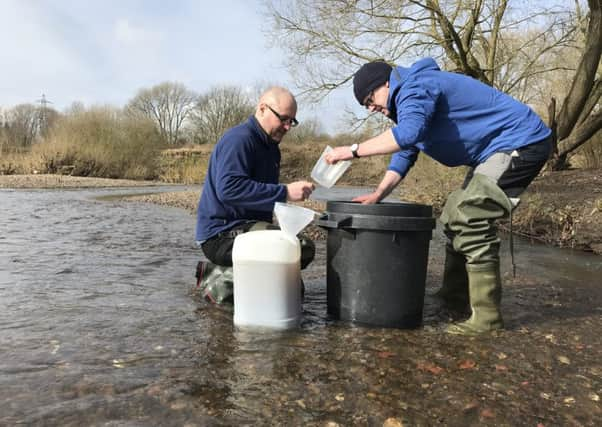Floods shown to wash plastic from polluted rivers into sea


In the first study of its kind, scientists at the University of Manchester have found that UK rivers are heavily contaminated by tiny fragments of plastic and are a major contributor to the pollution problem in global oceans.
The team examined microplastics in river sediments at 40 sites around Manchester, including rural streams and rivers in the city centre.
Advertisement
Hide AdAdvertisement
Hide AdThey discovered microplastics in all waterways – including a site on the River Tame that had the highest levels recorded anywhere on the planet to date.
Analysis revealed concentrations of up to 517,000 plastic particles per square metre.
Following a period of major flooding, the researchers retested all of the rivers.
Results showed levels of contamination had fallen in most places, with floods removing around 70 per cent of microplastics that had previously been present on river beds. In some places all of the fragments were washed away.
The findings confirm that flood events can transfer large quantities of microplastics from polluted rivers to the sea.
“Microplastics in the ocean have recently attracted a lot of attention, but until now science knew little about the major sources of this pollution and the transport processes involved,” said Professor Jamie Woodward, the university’s head of geography.
“We decided to explore the contamination of urban river beds, as we began to think that they may be the main source of the problem.”
Microplastics are very small pieces of plastic debris such as microbeads from cosmetic products, microfibres from clothing and fishing gear and fragments of bigger items that have broken down. The synthetic particles enter rivers from multiple sources, including industrial effluent, storm water drains and domestic wastewater systems.
Advertisement
Hide AdAdvertisement
Hide AdThey pollute the environment and pose a danger to wildlife and ecosystems. Professor Woodward added: “To tackle the problem in the oceans, we have to prevent microplastics entering river channels.
“We also need to reduce our use of plastics.”